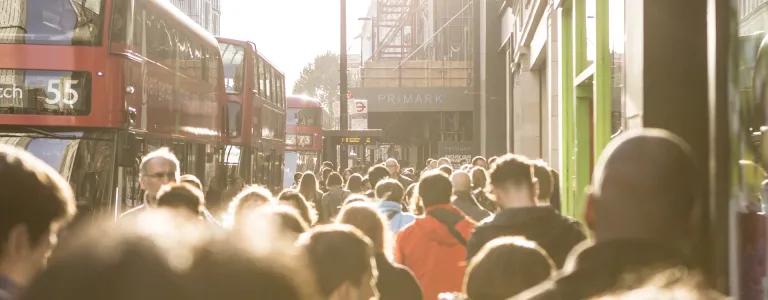
How My Heritage Affects My Life - NCS Grad, Xena
Finding your place when you have a mixed heritage can sometimes be frustrating. NCS grad, Xena, tells us the challenges and positives she’s found growing up as a Thai British woman living in London...
We have come far with equality in society. We can feel accepted for who we are, and not judged on the colour of our skin. We can live peacefully, without the fear of getting harmed. We can get free education so we can finally live independently and not in poverty.
Or so they say.
Because despite this so-called equality, despite being able to get on a bus freely, despite having a job, a house, an opinion, your own identity and freedom, we unfortunately still face challenges every single day. People of colour are still not being represented positively in the media. And there is huge evidence of colourism within our culture that leads to minorities not having the top jobs within their industries, even when they work the same hours and have the same responsibilities.
Racial discrimination still happens. Every day.
As a girl with British and Thai ancestry, I am well aware of racial discrimination. Of how my skin both gives me privilege and affects how I am treated by others.
Within my Thai culture, I’m sometimes praised for having white skin, as this is commonly seen as ‘desirable’ within Thai beauty standards. Growing up I was often called ‘Farang Noi’ (the Thai word for foreigner) as a form of praise, as those who grew up in poorer backgrounds more commonly have darker skin. Damaging skin bleaching products are very common in Thailand as people want fairer skin that much.
As I got older, I was made aware of how discriminating ‘Farang Noi’ really is, and how it can also be used offensively, in the term ‘Farang Kee Nok’, which translates to ‘Bird poop Western’. So you can see that at the same time as being praised by my culture, I was looked down on for the exact same reason.
My culture is also not really heard of in British Media. It’s frustrating never seeing someone who looks like you on TV or in music videos. And even more frustrating when they are, because they’re usually represented stereotypically. In Michael Jackson’s Black or White video, Thai women were only seen wearing traditional costumes, performing The Kohn (a traditional Thai dance). It makes people think that we all dress like this and dance like this all the time.
I’m considered one of ‘the lucky ones’ because I grew up in London, one of the wealthiest cities in the world. I’ve never had to live in poor housing conditions. I have free education (Thai high schools, whether they are state or public, are not free). I’ve got good quality food, drinks and clothing. But, being mixed race also means I’m often considered not truly Thai, nor truly British.
These criticisms sometimes make me feel excluded. And even though I don’t represent everyone, as every experience is different, I do represent someone from different backgrounds. I represent people who have had similar experiences.
I’m proud of my heritage and that people can relate to my story. I’m proud I can speak up for those who aren’t represented at all within our culture. And I wouldn’t change that for anything.

